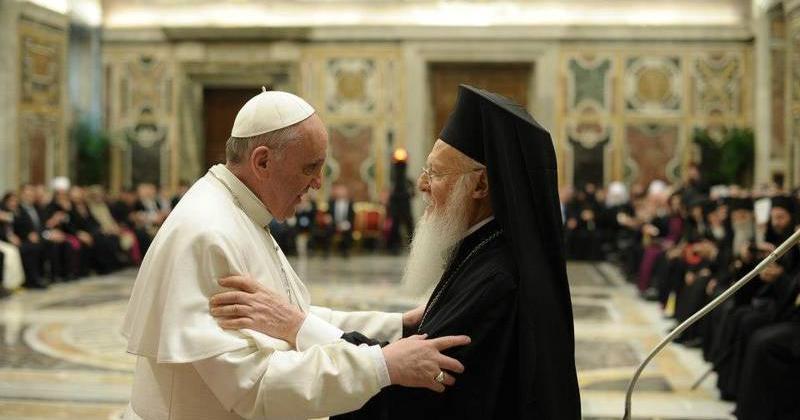“The Pope plans to reform the papacy and this will benefit relations with the Orthodox,” says the Prior of the monastic community of Bose, Enzo Bianchi. Pope Francis has appointed Bianchi as one of the new consultors of the Pontifical Council for Promoting Christian Unity, the Vatican dicastery led by Cardinal Kurt Koch who is in charge of ecumenical matters. The newly appointed cleric welcomed his nomination with surprise (“I didn’t expect it, he hadn’t told me anything”), predicting a synodal evolution of the Catholic Church; he urged Christians around the world not to leave their brothers and sisters in the Middle East, particularly in Iraq and Syria, alone and emphasized the fact that the various Christian denominations that exist in Ukraine have managed to avoid a “political immersion”.
“I didn’t expect this nomination, it caught me by surprise,” Enzo Bianchi says. “The Pope received me in audience last 2 July. It was the third time I saw him since the start of the pontificate and I was delighted; we spoke about Church unity and about what needs to be done to promote this unity. But he didn’t speak to me about this nomination.”
Speaking about ecumenism, the Prior of Bose said: “I think the Pope has one main concern: unity is not created with the spirituality of unity, it is a command we must follow as it is Christ’s command. It is a commitment, which he sees as a priority. He sees unity with the Orthodox Church as an urgent goal. I think the Pope wants to achieve unity also through the reform of the papacy. A papacy which his no longer feared, said Ecumenical Patriarch Bartholomew with whom Francis shares a friendship.” A reform of the papacy means “a new balance between synodality and supremacy. The Orthodox Church exercise synodality not supremacy, we Catholics have papal supremacy but we lack synodality. There can be no synodality without supremacy and there can be no supremacy without synodality. This would help create a new style of papal primacy and episcopal government.” A change like this would be practical: the Synod of Bishops has been around since the Second Vatican Council” and the 9-member Council of Cardinals that advise the Pope on Curia reform was the Pope’s idea. In the future, however, there is the possibility of creating “an episcopal organization that assists the Pope in leading the Church without calling papal primacy into question.”
Enzo Bianchi, who has dedicated his life to ecumenism, drew attention to “the delicate situation” in Ukraine, where Christian communities are fragmented: “It must be said, however, that all Churches, the various Orthodox Churches, Latin Catholics and Greek Catholics have been intelligent enough not to immerse themselves in politics; this demonstrates a better ecclesial awareness than expected.” In terms of the dramatic situation faced by Christians in the Middle East, Enzo Bianchi said “they need to feel the fraternity and solidarity of fellow Christians.” The Prior of Bose reiterated the importance of an ecumenism of the blood, which Pope Francis had stressed: “I am thinking of the Christians in Iraq and Syria: never before have there been as many martyrs as today and they are Christians of all denominations. The blood of all Christians is united beyond theological and dogmatic decisions.”
